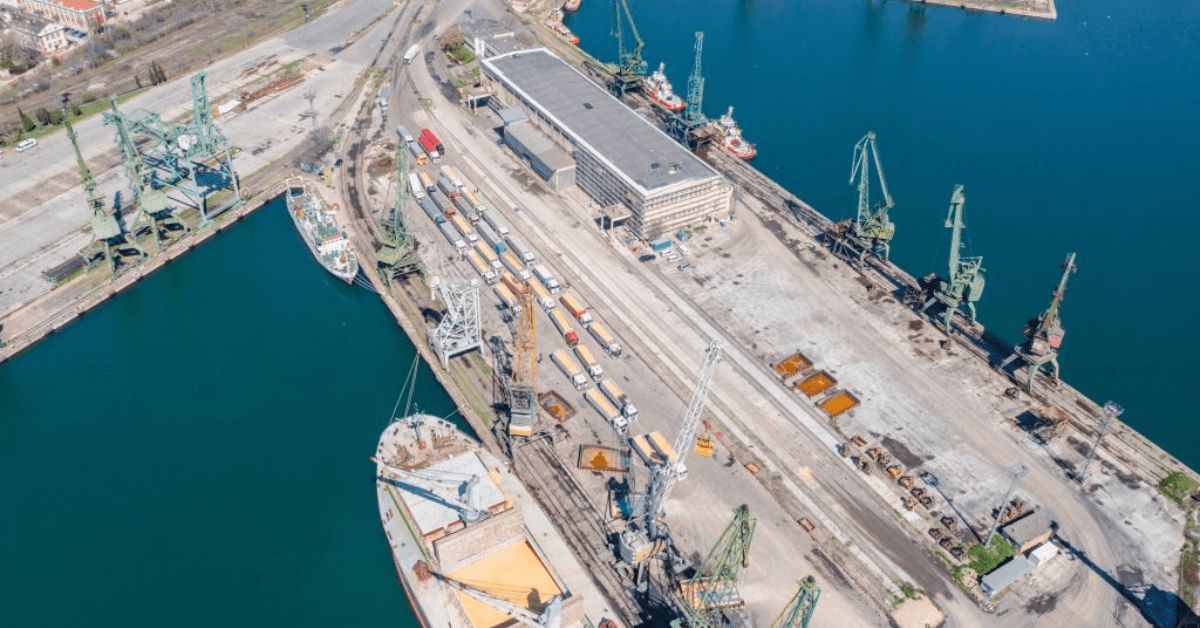A terminal for grain and bulk cargo will be built in the Bulgarian port of Varna

With a 50 million euros loan, the European Investment Bank (EIB) will support the construction of a new grain and bulk cargo terminal at the Bulgarian port of Varna. EIB signed the agreement with Logistic Centre Varna AED to develop a hub also important for Ukrainian grain exports. The new terminal will also have a railway connection.
Logistic Centre Varna AED is part of the Buildcom Group, Bulgaria’s largest private sunflower oil producer and grain trader. The terminal will be ready for operations in the second quarter of 2026. According to EIB, works will also include the construction of a new quay, a silo and other storing facilities and a new railway and road access. With this investment, Varna’s position as a grain and bulk goods hub will be upgraded.
The port of Varna has also been used to export Ukrainian grain. It might not have contributed as significantly as other Black Sea ports, namely Constanta, in this endeavour, while most traffic flows arrived by road. However, with the new investment, this is set to change.
A corridor is shaping up
Apart from the new grain and bulk cargo terminal investment, the port of Varna is amid more developments that could centralise its position. A good example is the joint Greek-Bulgarian Sea2Sea project aiming to build a railway line between the Greek port of Thessaloniki and Ruse in Bulgaria.
The line will pass through the Greek ports of Kavala and Alexandroupolis before crossing the border with Bulgaria to reach the ports of Burgas and Varna and, finally, Ruse. Greece is currently investing roughly three billion euros to complete the needed railway infrastructure leading to Bulgaria. However, Bulgaria is also ready to roll out some investments. One of them is the construction of an intermodal terminal in Ruse, for which the Bulgarian National Railway Infrastructure Company (NRIC) launched a 27 million euros tender in early 2023.
In addition, the Ruse-Varna railway is part of a major rehabilitation project aiming to improve freight mobility. This line was built in 1886, making it the first-ever railway in Bulgaria. According to the Danube Region strategy project, the rehabilitation aims to “create the conditions for the development of intermodal sea-railway-river transport, contributing to the promotion of intermodality, by enhancing the connection of two main ports in Bulgaria”.
Read also
Wheat in Southern Brazil Impacted by Dry Weather and Frosts
Oilseed Industry. Leaders and Strategies in the Times of a Great Change
Black Sea & Danube Region: Oilseed and Vegoil Markets Within Ongoing Transfor...
Serbia. The drought will cause extremely high losses for farmers this year
2023/24 Safrinha Corn in Brazil 91% Harvested
Write to us
Our manager will contact you soon



